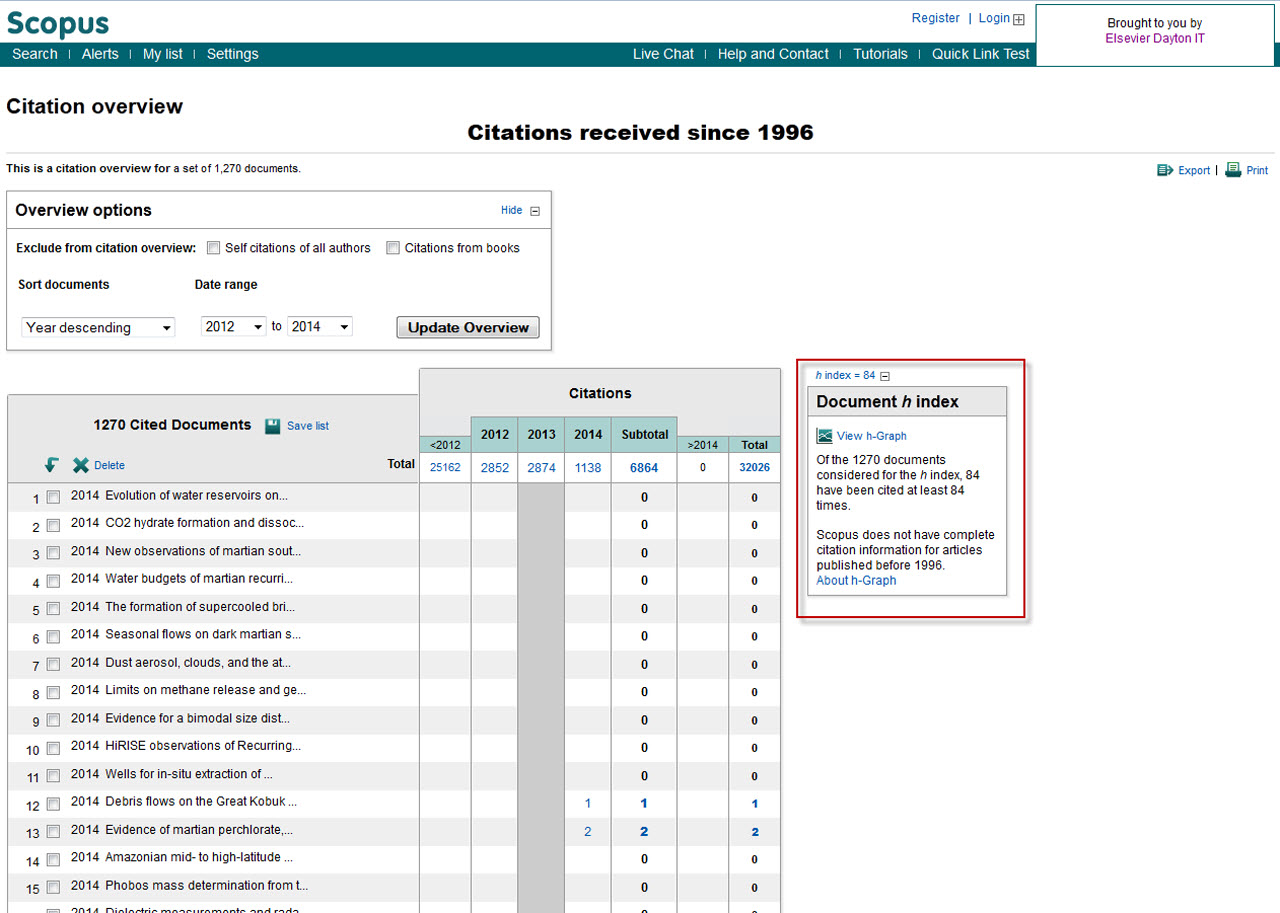The Scopus h-index, what’s it all about? Part I
Many of the questions we receive are related to the h-index. Today we bring you a guest post by Meshna Koren, Second Line Support Manager for Scopus (also known as "she who knows all about Scopus").
The h-index is an index that attempts to measure both the productivity and impact of the published work of a scientist or scholar. In Scopus, the h-index is not a static value; it is calculated live on a set of results each time you look it up. The calculation was suggested by Hirsch and it can be summed up as:
A scientist has an index h if h of his/her Np papers has at least h citations each, and the other (Np h) papers have no more than h citations each.
In Scopus you can calculate it on any set of results; it does not have to be papers belonging to just one author. Just run a random search: TITLE-ABS-KEY(mars water ice), select all results, click View Citation Overview and therein you will see the h-index value for that set (see image).
This means that 84 documents from this set have been cited at least 84 times, but the 85th document has been cited less than 85 times. Tomorrow we may load new articles (Scopus loads new content daily!) which cite any one article in this set, and the h-index may rise because of that.
What you do need to know about Scopus is that we do not have references for records of articles that have been published prior to 1996 (though this will be changing in the relatively near future, read more on the Scopus Cited References Expansion project!).
The references are needed to calculate citations; if my article A cites your article B, but Scopus doesn't have references of my article A, well, your B won't show as being cited. There's no danger if you published in 1996 or later because you couldn't have been cited before that time, but if you published in 1982 we may be showing a lower citation count for that article. And if you look at the above screenshot again, we do warn you there: "Scopus does not have complete citation information for articles published before 1996."
Check back tomorrow for Part II of “The Scopus h-index, what’s it all about?” when we focus on calculating an individual author’s h-index.


